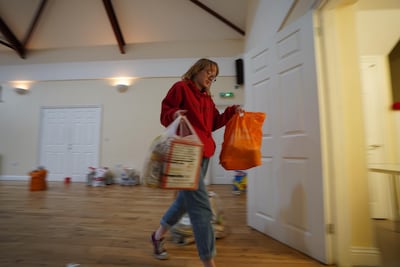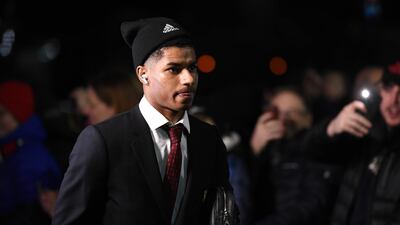If you are a fan of action movies you might like to know that Dwayne 'The Rock' Johnson has endorsed Joe Biden as President of the United States. The Rock transformed his pro-wrestling career into fame as a film star, and now The Fast and The Furious hero has appeared in a video interviewing a clearly delighted Joe Biden and his running mate Kamala Harris.
Brad Pitt, Taylor Swift and Cher have also endorsed Biden-Harris. On the Trump side, Kirstie Allie tweeted she was voting for Trump “because he’s NOT a politician. I voted for him 4 years ago for this reason and shall vote for him again for this reason.”
During those four years Mr Trump was in fact the US President, but hey, ho, perhaps that somehow still doesn’t make him “a politician”, at least for Allie. Actor Jon Voight also backed Trump saying in a video: “Biden is evil”.
Whether anyone has ever changed their mind as a result of a celebrity endorsement of a candidate is a bit of a mystery. Those who enjoyed Jon Voight's performance in the 1969 film Midnight Cowboy quite possibly do not care very much 50 years later whether he thinks Joe Biden is evil or Donald Trump is a genius.
But here is a different take on celebrity endorsement, this time in Britain. The 23-year-old Manchester United player Marcus Rashford is a football star. He scored a hat-trick against RB Leipzig last week and in his spare time he is trying to feed some of the 1.4 million children in England who qualify for free school meals.

These meals are only available during school term time in England, while Scotland, Wales and Northern Ireland have their own separate education systems. Those three parts of the UK are providing school meals to needy children during school holidays, while the Westminster government of Boris Johnson has bluntly refused to do so for England.
It means that as Mr Johnson’s flip-flopping administration imposes yet another coronavirus lockdown, it looks increasingly Scrooge-like, with Christmas holidays arriving next month.
Rashford has won public sympathy, an award from the Queen, and the support of many generous businesses, some of them small, family-owned shops or cafes providing food or vouchers for families in need.
There has also been support from many local councils in England which – while often themselves strapped for cash – want to make sure hungry children get at least one good meal a day.
The Conservative Party was once described by its former leader Theresa May as “the Nasty Party”, lacking empathy and kindness. A few brave Conservative MPs rebelled against Mr Johnson and voted in favour of extending the free school meals programme in England.
Other Conservative MPs suggested that feckless parents will swap meal vouchers for drugs or alcohol. There is scant evidence of this, and in any case, it is a heartless argument. Should we not feed hungry children because their parents are inadequate?
Meanwhile the British charity Comic Relief has announced it will no longer send celebrities to Africa as part of their campaigns. The singer Ed Sheeran was accused of “poverty porn” on a Comic Relief trip to Liberia. Another celebrity, Stacey Dooley, posted on Instagram a picture of herself with a less-than-happy-looking Ugandan child. Her caption said “OBSESSSSSSSSSSED”. The Labour MP David Lammy responded that there were too many “tired and unhelpful stereotypes” about Africa, and that “the world does not need any more white saviours”.
The bigger issue is whether celebrity endorsement helps a cause or damages it. The evidence is mixed.
In the 2016 US presidential election, celebrity endorsements possibly damaged Hillary Clinton, since they allowed Donald Trump to emphasise that she was part of an out-of-touch elite. That is ironic, given that Mr Trump owed his election victory to his own celebrity status on a TV reality show.
But the Rashford campaign is different from celebrity froth. His life story means he is not campaigning about something outside his experience. He is talking about child poverty and poverty was part of his own childhood.
Rashford was a poor kid whose family needed help because they did not have enough money. His sincerity and authenticity is obvious and heartfelt and, in such cases, celebrity endorsements work wonders.
Sports stars and Hollywood giants talking about prostate cancer, breast cancer, dementia, racism or child poverty from their own or their family’s experience humanise a problem.
A celebrity can gain attention in our otherwise busy lives. And celebrity sells. That is why you might see that famous actor drinking a cup of that famous coffee, or that sports personality recommending a brand of running shoes.
As for an actor or musician recommending a US President in the most divisive election of modern times, well, even if you don’t admire their political judgement you should have some respect for their bravery.
Gavin Esler is a broadcaster and UK columnist for The National


